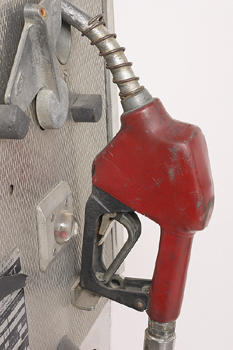New Vehicle Fuel Economy Drops In April
 Print this Article | Send to Colleague
Print this Article | Send to Colleague

Robust sales of trucks and small sport utility vehicles, which have been aided by stable fuel prices, reduced the fuel economy of the vehicles sold in the United States in April.
The average fuel economy of new vehicles sold in the U.S. in April was 25.2 mpg – down 0.2 mpg from the value for March, according to a monthly survey by the University of Michigan. Michael Sivak, one of the U-M researchers responsible for the survey said the shift "likely reflects the increased proportion of light trucks among newly purchased vehicles."
Overall vehicle fuel economy is up 5.1 mpg since October 2007 when U-M began keeping track of in the changes in vehicle fuel economy, Sivak said.
Just in time for the summer driving season, gas prices have been declining after reaching a national high of $3.658 per gallon on average on April 29. Analysts say that many factors contributing to a sharp rise in gas prices earlier this spring have now been resolved. Refineries have mostly switched from making winter-blend gasoline to summer-blend fuel, and about ninety percent of them have finished their annual spring maintenance. A dip in demand for gasoline also has contributed to a decline in oil prices.
The stable gasoline prices have prompted consumers to consider utility vehicles. Sales of Jeeps jumped 52 percent in April and sales of the Ford Explorer were the best in several years and the Toyota Highlander helped lead Toyota to a double-digit sales increase in April. The uptick in economic activity also contributed to an increase in the sales of pickup trucks.
The University of Michigan’s Eco-Driving Index (EDI), an index that estimates the average monthly emissions of greenhouse gases generated by an individual U.S. driver, reached a record low of 0.77 in February. This value indicates that the average new-vehicle buyer produced 23 percent lower emissions in December 2013 than in October 2007. The lower value is better for the environment. The EDI takes into account both vehicle fuel economy and distance driven the latter relying on data that are published with a two-month lag.
Back to NAFA Connection


